
Can Motorcycles Split Lanes in AZ?
 With breathtaking scenery in every direction and year-round sunshine, it’s no wonder why Arizona is home to over 180,000 motorcycle drivers. As exciting and freeing as it can be to ride a motorcycle, it can also be dangerous. To protect all drivers on the roads of Arizona, there are many motorcycle laws in place.
With breathtaking scenery in every direction and year-round sunshine, it’s no wonder why Arizona is home to over 180,000 motorcycle drivers. As exciting and freeing as it can be to ride a motorcycle, it can also be dangerous. To protect all drivers on the roads of Arizona, there are many motorcycle laws in place.
The Motor Vehicle Division requires all motorcyclists to pass a vision test, skills test, and written test before obtaining their motorcycle license or Class M endorsement. However, with such a massive amount of information to remember, it can get a little confusing.
Today, our skilled team of motorcycle accident attorneys will answer one of the most popular questions for Arizona motorcyclists: can motorcycles split lanes in AZ? We will discuss what lane splitting is and the legality surrounding it.
What is Lane Splitting?
 Lane splitting is a situation that involves a motorcyclist driving between two lanes of traffic heading in the same direction. While the act of lane splitting is illegal in many states, it’s a common act that motorcyclists perform to bypass traffic.
Lane splitting is a situation that involves a motorcyclist driving between two lanes of traffic heading in the same direction. While the act of lane splitting is illegal in many states, it’s a common act that motorcyclists perform to bypass traffic.
The question of ‘can motorcycles split lanes in AZ’ is a common one, even more so since lane splitting was legalized in the neighboring state of California. Advocates for a change in the law surrounding lane splitting in Arizona argue that legalizing lane splitting could help motorcyclists prevent dangerous situations.
Research has shown that lane splitters were less likely to suffer from serious injuries in motorcycle accidents, specifically to the head or torso. In California, lane splitting was legalized to help keep motorcyclists safe and reduce traffic congestion. While it’s yet to be determined if Arizona will follow suit, for now the law remains as is.
Can Motorcycles Split Lanes in AZ?
 While you may have seen motorcycles split lanes in AZ before, it is actually illegal. According to A.R.S. § 28-903, anyone driving a motorcycle is entitled to the full lane, but cannot overtake and pass another vehicle while in the same line. The law also prohibits traveling between adjacent rows or lanes of vehicles.
While you may have seen motorcycles split lanes in AZ before, it is actually illegal. According to A.R.S. § 28-903, anyone driving a motorcycle is entitled to the full lane, but cannot overtake and pass another vehicle while in the same line. The law also prohibits traveling between adjacent rows or lanes of vehicles.
Additionally, motorcycle riders cannot ride with more than two motorcycles side by side if there is no other lane. However, there is an exception to the rule in the event that law enforcement officials need to ride abreast to perform their duties.
To summarize, motorcycles are expected to drive as cars do. A car physically could not split lanes, so a motorcycle should not either. When riding a motorcycle, it’s important to keep this in mind to avoid accidents.
Top Motorcycle Accident Lawyers in Phoenix, AZ
At The Law Office of Zayed Al-Sayyed, our experienced team of motorcycle accident lawyers is dedicated to protecting the rights and freedoms of our clients. We employ an Aggressive Compassionate Representation to act aggressively in our case strategy and compassionately for each of our clients.
If you or a loved one has been involved in a motorcycle accident in Phoenix, contact us today to schedule a free consultation with one of our top motorcycle accident attorneys.
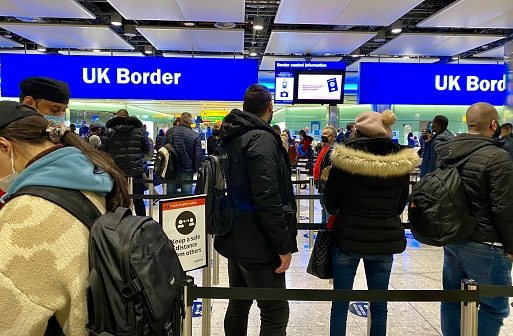
These Are the Four Types of Immigration Statuses in the US
 In the United States, citizenship is not black and white. There are four categories of immigration statuses: citizens, residents, non-immigrants, and undocumented immigrants. In this easy-to-read guide, our team of skilled immigration lawyers at The Law Office of Zayed Al-Sayyed will discuss the four types of immigration statuses in the United States.
In the United States, citizenship is not black and white. There are four categories of immigration statuses: citizens, residents, non-immigrants, and undocumented immigrants. In this easy-to-read guide, our team of skilled immigration lawyers at The Law Office of Zayed Al-Sayyed will discuss the four types of immigration statuses in the United States.
The Four Types of Immigration Statuses in the US
Whether or not you are involved in an immigration case, it’s important to understand the differences between various immigration statuses in our country. Let’s dive right in and go over the four different types of immigration statuses recognized in the United States.
US Citizens
Anyone who was born in the United States or gained citizenship after 3-5 years of permanent status is referred to as a US citizen. Except in the event of fraud, citizens cannot be deported. Citizens are eligible for any public benefits based on job status, as long as their employment is legal. They can also apply for the legal status of their spouse, child, or parent.
Documentation for family members can be provided in the form of a driver’s license, birth certificate, or I.D. cards issued by the state. After the documents are confirmed, the individual will be granted a visa and become a US citizen. Upon receiving a Social Security card, the individual will gain access to every right that a U.S. citizen enjoys.
Permanent and Conditional Residents
 People who have a permanent resident card, also known as a green card, are considered legal permanent residents (LPRs). These people have been granted permission to live and work permanently in the United States; they are referred to as green card holders.
People who have a permanent resident card, also known as a green card, are considered legal permanent residents (LPRs). These people have been granted permission to live and work permanently in the United States; they are referred to as green card holders.
An individual can become an official permanent resident in various ways, although the most common way is to be petitioned by a relative. LPR status can also be obtained through refugee or asylum status.
Non-Immigrant Status
An immigrant’s short-term stay in the United States can be granted with a temporary visa. Once their visa expires, they must return to their home country. The term “temporary immigrants” or “non-immigrants” is used to describe immigrants who are in the country on either a visiting visa (B2) or a business visa (B1).
If extending the visa is not possible, they will have to leave the United States after fulfilling their responsibilities or visitation purpose. Citizens of other countries who wish to apply for this type of visa must fill out the form DS-160. It’s important to note that by submitting this form, you confirm that you will only be staying for a short time period.
Undocumented Status
“Undocumented” refers to anyone who has entered the country without authorization or in an unlawful manner. As a result, they are legally unable to live in the United States. Undocumented immigrants living in the US are not legally able to obtain work and do not have access to public services like healthcare.
Living in the US as an undocumented immigrant means running the risk of being deported at any time. This situation can create living conditions that are incredibly stressful and scary.
Top Immigration Lawyers in Phoenix, AZ
 At The Law Office of Zayed Al-Sayyed, our team is dedicated to the Phoenix immigrant community. With a client-focused approach, we work diligently and effectively to guide our clients through the immigration process. We employ an Aggressive Compassionate approach to representation to act aggressively on behalf of our clients and compassionately for each individual we work with.
At The Law Office of Zayed Al-Sayyed, our team is dedicated to the Phoenix immigrant community. With a client-focused approach, we work diligently and effectively to guide our clients through the immigration process. We employ an Aggressive Compassionate approach to representation to act aggressively on behalf of our clients and compassionately for each individual we work with.
If you or a loved one is seeking legal help with an immigration case in Phoenix, contact us today to schedule a free consultation with one of our top immigration lawyers.

Is a Motorcycle License Required in Arizona?
 With one of the most diverse landscapes in the country, Arizona is home to breathtaking scenery everywhere you turn. Long stretches of cactus-lined highway give way to striking backdrops of alpine mountainscapes and canyons. It’s a haven for motorcycle riders, which is likely why there are over 180,000 registered motorcycle riders in Arizona.
With one of the most diverse landscapes in the country, Arizona is home to breathtaking scenery everywhere you turn. Long stretches of cactus-lined highway give way to striking backdrops of alpine mountainscapes and canyons. It’s a haven for motorcycle riders, which is likely why there are over 180,000 registered motorcycle riders in Arizona.
If you’re looking to trade in your hatchback for a Harley, you may be wondering ‘is a motorcycle license required in Arizona?’ The answer is yes. Our team of experienced motorcycle accident attorneys at The Law Office of Zayed Al-Sayyed is sharing everything you need to know about getting a motorcycle license in Arizona. By the time you’ve finished reading, you will be ready to take on the open road.
Eligibility for Obtaining a Motorcycle License in AZ
In Arizona, you are required to obtain a motorcycle license or a Class M endorsement on your existing driver’s license. When applying for a motorcycle license in Arizona, you must satisfy the following requirements:
- You must be over the age of 16.
- If you are under the age of 18, you must have held an Arizona instruction permit for a minimum of 6 months.
- You must have completed a motorcycle driver education program approved by the MVD or have a signed document from a parent or guardian stating that you have completed at least 30 hours of motorcycle driving practice.
If you hold an active out-of-state motorcycle license or Class M endorsement, then you are exempt from the driver education and instruction permit requirements.
Motorcycle Registration Process in AZ
 All motorcycles purchased in Arizona must be registered with the Motor Vehicle Division (MVD) within 15 days of purchase. If you do not meet the required deadline, you are likely to be penalized with heavy fines or even a suspension of your license.
All motorcycles purchased in Arizona must be registered with the Motor Vehicle Division (MVD) within 15 days of purchase. If you do not meet the required deadline, you are likely to be penalized with heavy fines or even a suspension of your license.
When purchasing a motorcycle from a dealer, the dealer is responsible for sending your registration papers to your home address. They may also offer you a temporary motorcycle registration document to use until the official paperwork arrives at your home. Before leaving the dealership, you should always check with the dealer to see if there are any further actions required on your part.
Motorcycle Laws in Arizona
Below are some of the most important motorcycle laws in Arizona to keep in mind.
Motorcycle Helmet Law in Arizona
A.R.S. § 28-964 requires all motorcycle riders under the age of 18 to wear a helmet. While it is recommended for safety purposes that all riders wear a helmet at all times, the law only pertains to riders under 18 years of age. Motorcyclists can choose between full-face and three-quarter helmets.
Additional Safety Equipment Laws for Motorcycles
 Arizona law requires the use of a transparent face shield, goggles, or protective glasses for all riders. Another alternative is to use a protective motorcycle windshield. It is important to keep your windshield free of debris or damage, as this can distract the driver from the road and present a potential safety concern.
Arizona law requires the use of a transparent face shield, goggles, or protective glasses for all riders. Another alternative is to use a protective motorcycle windshield. It is important to keep your windshield free of debris or damage, as this can distract the driver from the road and present a potential safety concern.
According to Arizona state legislation, all motorcycles must have a decent seat and footrests for the rider and any passengers, as well as a sideview mirror and working headlights.
Motorcycle Noise Laws in Arizona
The maximum noise output of a motorcycle muffler is measured 50 feet from the center of the road. Arizona law requires you to utilize the motorcycle’s original muffler. If the original is faulty, it is suggested that noise reduction components be installed to ensure that your motorcycle adheres to state noise laws.
Motorcycle Lane-Sharing Laws in Arizona
Arizona’s lane-sharing laws for motorcyclists are as follows:
- Motorcyclists have the right to utilize the whole lane.
- It is illegal to ride your motorcycle in the center of the road or between adjacent rows of automobiles (lane splitting).
- It is illegal to have more than two bikes in a single lane.
Motorcycle Accident Attorney in Phoenix, AZ
Here at The Law Office of Zayed Al-Sayyed, our award-winning team handles each case with compassion and efficiency. After suffering through a motorcycle accident, many people become overwhelmed and wind up being taken advantage of by greedy insurance companies. Our job is to make sure that doesn’t happen.
If you or a loved one has been in a motorcycle accident in Phoenix, contact us today to schedule a free consultation with one of our skilled motorcycle accident attorneys. Find out why we are known as one of the top personal injury law firms in Phoenix, AZ.
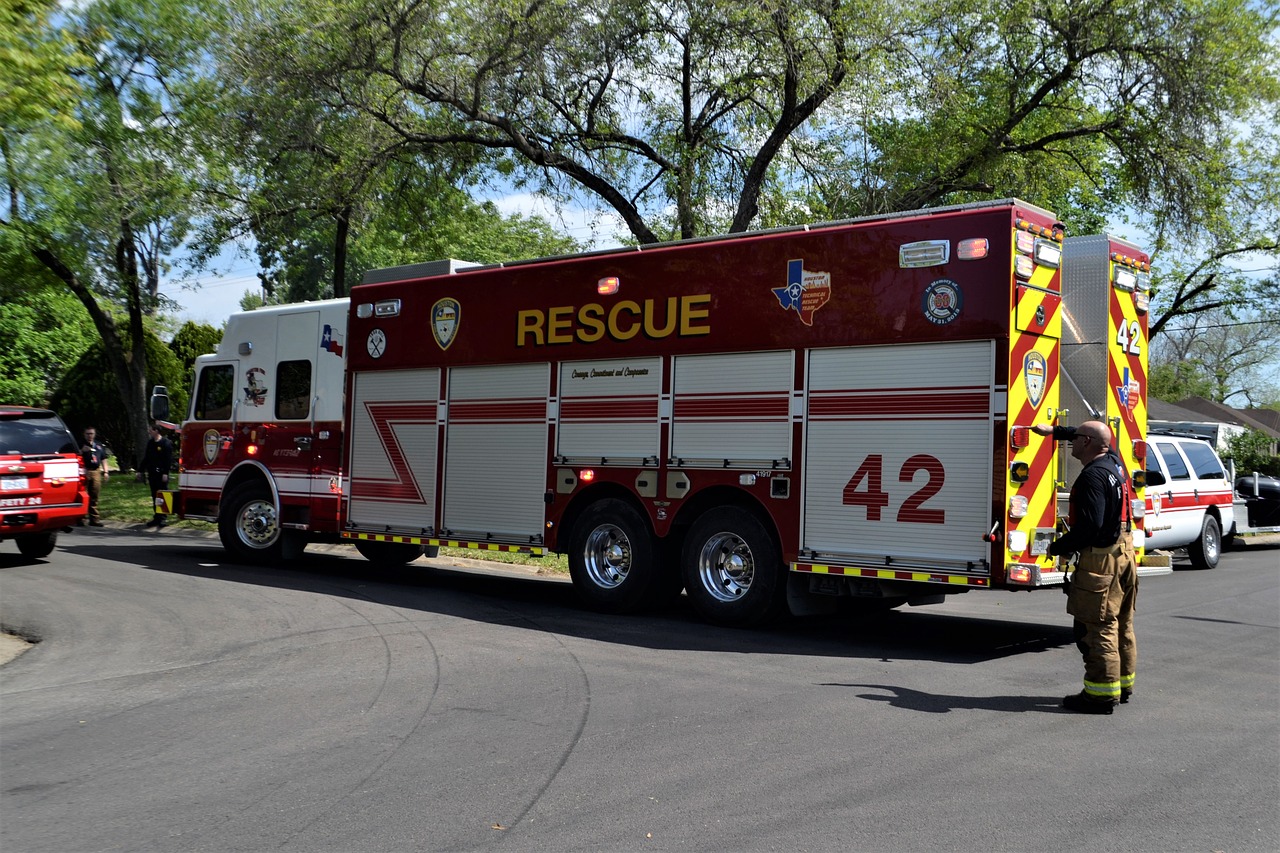
Who Is At Fault in a Pedestrian Accident?
 While many auto accidents involve two vehicles colliding with one another, some also involve a collision with a pedestrian. In these cases, many people wonder who is at fault in a pedestrian accident. Unfortunately, there is no black and white answer. Oftentimes the vehicle driver is found to be at fault, but there have been plenty of instances where the pedestrian was the one at fault.
While many auto accidents involve two vehicles colliding with one another, some also involve a collision with a pedestrian. In these cases, many people wonder who is at fault in a pedestrian accident. Unfortunately, there is no black and white answer. Oftentimes the vehicle driver is found to be at fault, but there have been plenty of instances where the pedestrian was the one at fault.
With one of the nation’s highest rates of pedestrian deaths, Arizona is not the safest state to traverse on foot. Regardless of whether or not you have been involved in a pedestrian accident, it’s important to understand how fault is determined and which damages could be recovered. Our top auto accident attorneys are here to answer any questions you might have about pedestrian accidents.
Arizona Pedestrian Accident Statistics
According to Arizona state law, the term “pedestrian” refers to anyone who is running, walking, or traveling in a wheelchair. Unfortunately, pedestrian accidents are a common issue in Arizona. Below are some of the most prominent recent statistics regarding Arizona pedestrian accidents:
- In 2018, Arizona had 3.3 pedestrian deaths per 100,000 people, which was nearly twice the national average.
- More than 50% of all fatal pedestrian crashes in Arizona occur in the road, but not in a crosswalk or intersection.
- From 2014 to 2019, Arizona has seen a 42% increase in pedestrian fatalities.
- In 2018, Arizona had the 4th highest fatality rate for pedestrians in the country, following behind New Mexico, Florida, and Louisiana.
- Between 2014 and 2019 alone, 1,202 pedestrians were killed from a collision with a vehicle.
- Every year since 1994, Arizona has ranked in the top 10 states for pedestrian deaths.
Determining Fault in Pedestrian Accidents
 Because pedestrians are very much protected by state law in the event of an accident, vehicle drivers are often found to be at fault. Pedestrians always have the right of way and vehicle drivers are expected to exercise extreme caution when coming across a pedestrian on the road. The main reason for this is that drivers have a legal responsibility to follow all traffic laws, while pedestrians have no such standards to contend with.
Because pedestrians are very much protected by state law in the event of an accident, vehicle drivers are often found to be at fault. Pedestrians always have the right of way and vehicle drivers are expected to exercise extreme caution when coming across a pedestrian on the road. The main reason for this is that drivers have a legal responsibility to follow all traffic laws, while pedestrians have no such standards to contend with.
That being said, pedestrians are not exempt from potential fault just because they are protected by law. There are several cases in which a pedestrian could be deemed at fault in a collision, including:
- Recklessly crossing the road (running across traffic, crossing outside of a crosswalk at night, etc.)
- Being willfully impaired by alcohol or drugs
- Ignoring signs or crosswalks.
Pedestrian Accident Attorneys in Phoenix
 If you or somebody you know has been involved in a pedestrian accident and is seeking compensation for damages, it’s important to seek out a skilled pedestrian accident attorney who has experience with similar cases. At The Law Office of Zayed Al-Sayyed, our dedicated personal injury attorneys have a proven track record of success with pedestrian accident cases.
If you or somebody you know has been involved in a pedestrian accident and is seeking compensation for damages, it’s important to seek out a skilled pedestrian accident attorney who has experience with similar cases. At The Law Office of Zayed Al-Sayyed, our dedicated personal injury attorneys have a proven track record of success with pedestrian accident cases.
Give us a call today to schedule a FREE consultation with one of our lawyers!
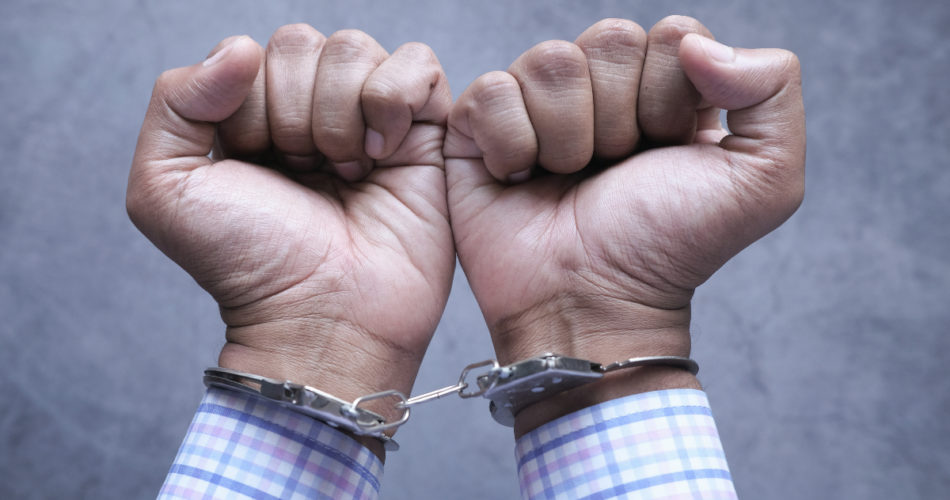
What Are the 5 Types of Crimes?
 In the eyes of the law, a crime is defined as any action or omission that defies legal code and is therefore punishable by law. While there are many different types of crimes, most can be divided into the following categories: crimes against property, crimes against a person, financial crimes, statutory crimes, and inchoate crimes.
In the eyes of the law, a crime is defined as any action or omission that defies legal code and is therefore punishable by law. While there are many different types of crimes, most can be divided into the following categories: crimes against property, crimes against a person, financial crimes, statutory crimes, and inchoate crimes.
In this easy-to-read guide to the 5 types of crimes, we will break down each category to explain what they mean and identify specific examples of crimes that fall into them.
Crimes Against Property
Crimes against property involve tampering with or unlawfully taking the property of another party. While this type of crime does not always involve a threat or use of force against the victim, it often results in depriving the victim of the use of their property. Common forms of crimes against property include the following:
- Burglary
- Larceny
- Motor vehicle theft
- Shoplifting
- Vandalism
Crimes Against a Person
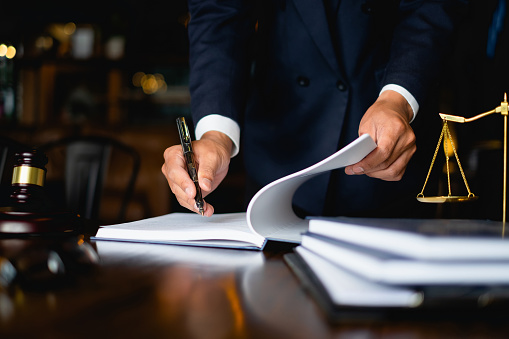 Also referred to as personal crimes, crimes against a person include a broad range of criminal offences that involve the threat or use of bodily harm, as well as any actions committed against the will of an individual. This category can be further split into two sub-categories: types of homicide and other violent crimes. Outside of homicide, some of the most common crimes against a person include the following:
Also referred to as personal crimes, crimes against a person include a broad range of criminal offences that involve the threat or use of bodily harm, as well as any actions committed against the will of an individual. This category can be further split into two sub-categories: types of homicide and other violent crimes. Outside of homicide, some of the most common crimes against a person include the following:
- Stalking
- Kidnapping
- Hate crimes
- Domestic violence
- Aggravated assault
Financial Crimes
Financial crimes can generally be defined as any illegal activities that involve dishonest or fraudulent behavior for the sake of personal financial gain. Crimes in this category can be committed either by individuals or by institutions like banks and corporations. Some of the most common forms of financial crimes include the following:
- Tax evasion
- Money laundering
- Embezzlement
- Counterfeiting
- Forgery
Statutory Crimes
This is a broad category of crimes that can include both personal and property offences. By definition, statutory crimes are actions that violate specific state or federal statutes. These types of crimes are associated with specific statutes to deter the public from engaging in them. Some of the most common statutory crimes include the following:
- Public intoxication
- Driving under the influence
- Selling alcohol to minors
- Driving without a license
- Drug possession
Inchoate Crimes
Inchoate crimes involve taking a punishable step towards a crime, without actually following through with the crime. Simply feeling the desire to commit a crime does not constitute an inchoate crime. The individual or group would need to take a substantial step towards committing a crime for it to be considered an inchoate crime. Common forms of inchoate crimes include the following:
- Solicitation
- Conspiracy
- Aiding and abetting
- Facilitation
- Attempt
Criminal Defense Attorneys in Phoenix
Regardless of which type of criminal charges you may be facing, it can be an incredibly scary situation. To ensure that you have the best possible odds at a favorable outcome, it’s essential to hire an experienced lawyer. At The Law Office of Zayed Al-Sayyed, our skilled team of Phoenix criminal defense attorneys utilize an Aggressive Compassionate Representation approach to provide our clients with the best legal support available.
Contact us today to schedule a free consultation and find out what we can do for you.
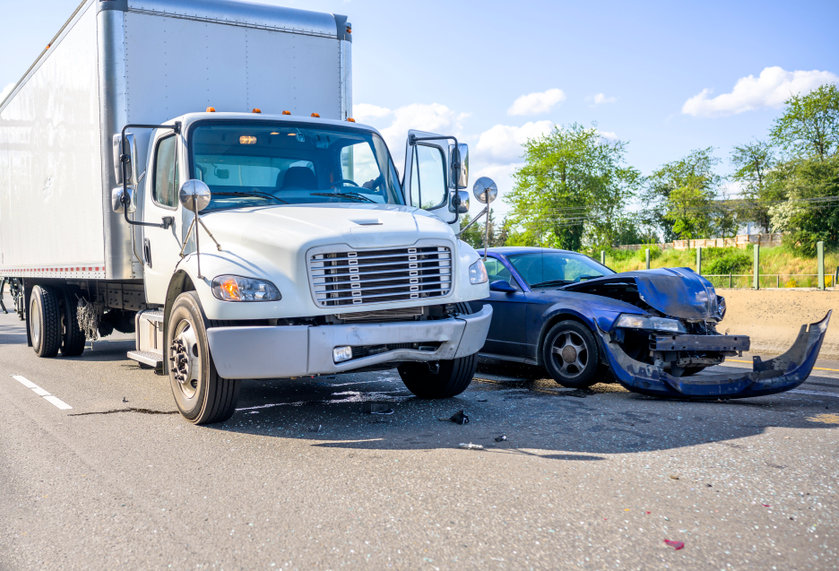
What Happens If You Get Hit By a Truck?
 Semi-trucks are at the center of thousands of accidents each year, causing unimaginable pain and heartache for all those involved. While we all hope to never find out what happens if you get hit by a truck, it’s important to understand what would happen.
Semi-trucks are at the center of thousands of accidents each year, causing unimaginable pain and heartache for all those involved. While we all hope to never find out what happens if you get hit by a truck, it’s important to understand what would happen.
With roughly 500,000 truck accidents taking place across the United States each year, it’s essential to be prepared. Our team of Phoenix truck accident attorneys is breaking down the important info that you should know regarding truck accidents in Arizona and what to do in the event of a truck accident.
Arizona Truck Accident Statistics
Between 2010 and 2019, the United States has seen a 42% increase in fatal crashes involving large trucks. Serving as a gateway to California, Arizona receives thousands of trucks on its highways each year. Below are some of the most staggering statistics regarding truck accidents both in the United States and in Arizona:
- In 2018, 67% of all deaths from crashes involving large trucks around the United States were passengers in other vehicles.
- The number of total vehicle crashes in Arizona was 129,750 in 2019, up by 1.6% from the year before.
- Alcohol related crashes in 2019 accounted for approximately 25% of all fatal crashes that year.
- It takes roughly 40x longer for a large truck to come to a complete stop than it does for a car.
- Motor vehicle crashes resulted in a total economic loss of $18.442 billion USD to Arizona.
- In 2019, trucks and buses were involved in 12,894 of all accidents in Arizona.
- Of those accidents, there were 2,891 injuries and 92 fatalities.
What To Do If I’m Hit By a Truck in Arizona
Truck accidents are incredibly scary situations both for those involved and for their loved ones. If you are involved in a truck accident in Arizona, it’s important to go through each of the following steps:
- Report the accident to the authorities
- Remain at the scene of the accident
- Collect any relevant information, including the truck driver’s information and vehicle details
- Get the contact information of any witnesses
Seek medical attention, even if you don’t believe yourself to be injured
- Consult with an experienced truck accident attorney
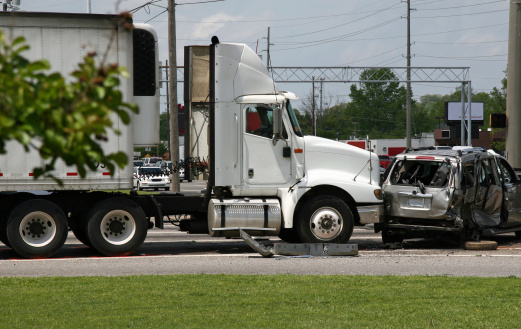 If you’ve been injured in a truck accident due to the negligence of someone else, you may be entitled to legal compensation. By working with a skilled Phoenix truck accident attorney, you can rest assured that you have someone in your corner fighting for you to get the maximum allowable compensation. While a lawsuit won’t take back what happened, it can go a long way in helping to financially recover from the aftermath of a truck accident.
If you’ve been injured in a truck accident due to the negligence of someone else, you may be entitled to legal compensation. By working with a skilled Phoenix truck accident attorney, you can rest assured that you have someone in your corner fighting for you to get the maximum allowable compensation. While a lawsuit won’t take back what happened, it can go a long way in helping to financially recover from the aftermath of a truck accident.
Truck Accident Attorneys in Phoenix, AZ
If you or a loved one has been involved in a truck accident, it’s important to seek out an experienced truck accident attorney to protect your rights and fight on your behalf. At The Law Office of Zayed Al-Sayyed, our award-winning team of lawyers utilizes an Aggressive Compassionate Representation strategy to aggressively fight for our clients and treat each unique case with compassion.
Contact us today for a free consultation and let’s discuss what we can do for you.
We never advise clients to call insurance company
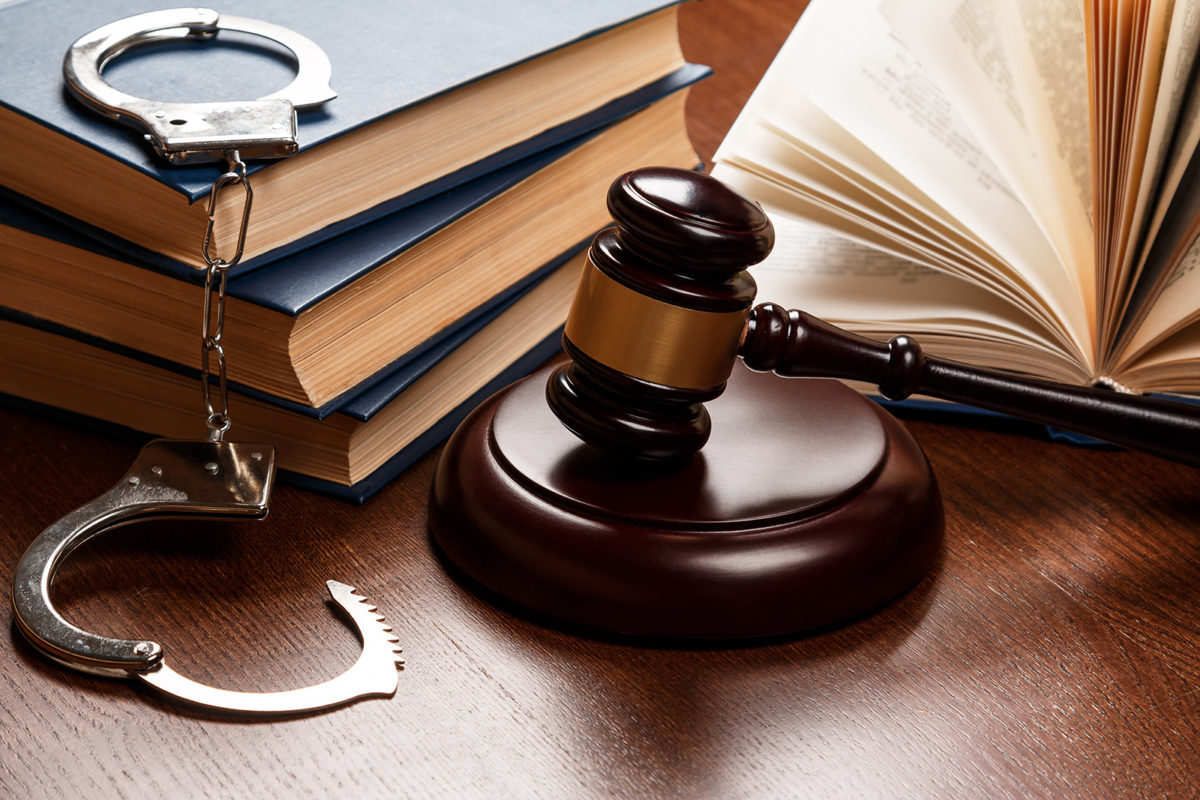
What Questions Should I Ask a Criminal Lawyer Before Hiring?
 The process of choosing the right attorney can be a challenging one, especially when the clock is ticking and your freedom is on the line. While it can be tempting to hire the first top-rated lawyer in Phoenix you find online, there is no one-size-fits-all approach here.
The process of choosing the right attorney can be a challenging one, especially when the clock is ticking and your freedom is on the line. While it can be tempting to hire the first top-rated lawyer in Phoenix you find online, there is no one-size-fits-all approach here.
It’s important to fully vet a criminal lawyer with a series of questions that will help you determine whether or not they are the right fit for you before you commit. When it comes to criminal defense cases, the lawyer you choose plays a huge role in the outcome of your case.
You’re probably wondering, what questions should I ask a criminal lawyer before hiring? With years of experience in criminal law under our belts and a proven track record of success, The Law Office of Zayed Al-Sayyed is here to help you prepare for that ultra-important first meeting.
Here are the top 10 questions to ask a criminal lawyer before hiring them:
-
Will anyone else be working on my case?
When your lawyer is the only one handling your case, you can significantly reduce the margin for error. However, some lawyers delegate a portion of the work to paralegals and junior associates.
-
How long have you been practicing criminal law?
 This is an easy way to find out how experienced a lawyer is before you make any commitments. Not only are experienced criminal lawyers better equipped to guide you through the legal process, but they can better anticipate the actions of the prosecution.
This is an easy way to find out how experienced a lawyer is before you make any commitments. Not only are experienced criminal lawyers better equipped to guide you through the legal process, but they can better anticipate the actions of the prosecution.
-
How often do your cases go to trial?
If you have a complex case, it’s important to work with a lawyer who is confident and well-versed in trial work in the event that the case cannot be resolved without a trial.
-
What area of criminal law do you specialize in?
Criminal law covers a wide range of cases. A quick Google search may lead you to the top-rated criminal lawyers in Phoenix, but it’s up to you to dig deeper. If you are dealing with a drug-related case, it may not be helpful to seek out the help of someone who specializes in white-collar cases.
-
How long can I expect my case to take?
While a lawyer won’t be able to give you an exact timeframe, they should be able to provide you with an idea of what to expect.
-
How much do you charge?
Many criminal defense attorneys charge flat fees for their services, but there are often additional fees involved throughout the legal process. It’s important to find out what kind of cost you can expect to pay before you agree to pay it.
-
Have you ever dealt with a case like mine?
If your lawyer has dealt with similar cases in the past, they will have a better idea of the costs associated with your case and the kind of outcome you can expect to get.
-
How often will we communicate?
When facing criminal charges, it can be incredibly stressful to feel like you are out of the loop. Be upfront with your lawyer about how often you expect to hear from them and make sure they will be available to answer your questions as they come up.
-
What strategy would you use to handle my case?
After hearing the details of your case, an attorney should be able to outline possible strategies and weigh the pros and cons of each one with you.
-
Why should I work with you?
 The answer to this simple question can tell you everything you need to know about the criminal lawyer you are considering hiring. Ask them about their credentials, related experience, and the level of dedication they would provide you with.
The answer to this simple question can tell you everything you need to know about the criminal lawyer you are considering hiring. Ask them about their credentials, related experience, and the level of dedication they would provide you with.
These are some of the most important questions to ask a criminal lawyer before hiring them. After learning the answers to these questions, you should know whether you’re ready to get started or want to keep looking. When it comes to protecting your freedom, never settle!
If you are in need of a criminal defense attorney in Phoenix, contact us today to schedule a free consultation with one of our experienced criminal lawyers. We are aggressive in our approach and compassionate for each of our clients, with a proven track record of success. Come in and find out why The Law Office of Zayed Al-Sayyed is one of the top law firms in Phoenix, Arizona.

What Questions Do Lawyers Ask Their Clients?
 When establishing a new lawyer-client relationship, many clients come prepared with a handful of questions to ask their new attorney. What you may not realize is that your attorney will have a handful of questions for you too!
When establishing a new lawyer-client relationship, many clients come prepared with a handful of questions to ask their new attorney. What you may not realize is that your attorney will have a handful of questions for you too!
Before you let the idea of being questioned make you nervous, it’s important to keep in mind that your lawyer is on your side. They want to see you succeed and they will do everything in their power to make that happen. None of the questions your lawyer will ask are meant to trip you up, they are simply meant to help them better understand you and your unique case.
So, what questions do lawyers ask their clients? Our team of skilled Phoenix attorneys at The Law Office of Zayed Al-Sayyed has narrowed down the most common questions for lawyers to ask their clients. By knowing what to expect, you can walk into the first meeting with your new lawyer fully prepared and ready to go.
Here are the top 5 questions that lawyers ask their clients in their first meeting:
-
Why did you come in today?
This is likely the first question your lawyer will ask you, so it’s important to be prepared with the details of your case. Be sure not to leave anything out, as even details that seem insignificant to you could be pertinent in helping your lawyer develop the best strategy to defend you.
-
What made you choose me?
With nearly 24,000 lawyers in the Phoenix metropolitan area, it’s a no-brainer that your lawyer will want to know why you chose them over the rest. Learning the answer will help them to understand how your mind works, how you solve problems, and what you value in a lawyer. This will help them begin to build a relationship with you and learn how to best support you in your case.
-
Have you worked with a lawyer before?
If you have never worked with a lawyer and are entirely unfamiliar with the legal process, your lawyer will make sure to explain everything thoroughly and walk you through the next steps in a way that you understand. If you have previously worked with a lawyer, they will likely want to know how they can make this experience a better one.
-
What are you hoping to accomplish?
By explaining to your lawyer what to hope to gain from working with them, you enable them to better support you. Be specific about the results you want out of your case and if compensation is the end goal, make sure to give them a number. This knowledge will help your lawyer craft the right strategy to ensure that you are satisfied with the result.
-
How would you like to communicate?
 This is an important question because it differs for everyone. Some people don’t have access to the internet at home, so email communication is not suitable. Others may have crazy work schedules that make phone or face-to-face communication a challenge, so emailing is the easiest route. Your lawyer will need to know which method of communication works best for you to ensure a smooth and expedient process.
This is an important question because it differs for everyone. Some people don’t have access to the internet at home, so email communication is not suitable. Others may have crazy work schedules that make phone or face-to-face communication a challenge, so emailing is the easiest route. Your lawyer will need to know which method of communication works best for you to ensure a smooth and expedient process.
These are just a few of the most common questions lawyers ask in a first meeting with a new client. By coming in prepared with honest answers, you can start to build a beneficial working relationship with your lawyer.
Top Attorneys in Phoenix, AZ
If you or somebody you know are in need of legal representation for a case, contact us today to schedule a free consultation with one of our experienced Phoenix attorneys at The Law Office of Zayed Al-Sayyed. Aggressive in our approach to your case and compassionate for each individual client, our proven track record of wins speaks for itself. Come in and find out why we are one of the top law firms in Phoenix, Arizona.

What Are the Benefits of Hiring a Personal Injury Lawyer?

A personal injury accident can be a life-altering experience. When somebody else’s negligence causes you pain and suffering, a personal injury lawyer can help you seek rightfully deserved compensation. Personal injury cases can be lengthy, complex, and downright confusing for anyone who is unfamiliar with them. For this reason and many more, it’s critical to hire an experienced personal injury lawyer to represent you.
Benefits of Hiring a Personal Injury Lawyer
While you are not required to hire a personal injury lawyer, it’s an essential step in obtaining the maximum compensation in your case. At The Law Office of Zayed Al-Sayyed, our award-winning team of personal injury lawyers has a proven record of going the extra mile for our clients.
 Before seeking legal representation, many people ask themselves: What are the benefits of hiring a personal injury lawyer? We have compiled a list of the top benefits you can expect from working with a personal injury lawyer on your case.
Before seeking legal representation, many people ask themselves: What are the benefits of hiring a personal injury lawyer? We have compiled a list of the top benefits you can expect from working with a personal injury lawyer on your case.
Here are the top 5 benefits of hiring a personal injury lawyer:
-
Personal injury lawyers improve your odds.
To put it bluntly, insurance adjusters are sharks. They will take advantage of your lack of understanding about the law and the claim process to get you a low settlement. Having an experienced personal injury lawyer fighting for you significantly improves your odds of obtaining the highest possible settlement.
-
Personal injury lawyers are experienced in all sorts of cases.
It’s very rare to approach a personal injury lawyer with a case they have never seen before. More often than not, they have dealt with similar cases in the past and can bring a wealth of relevant knowledge to the table.
-
Personal injury lawyers are determined to see you win.
Because many personal injury lawyers are only paid if you get an insurance settlement, you can rest assured that they have plenty of motivation to secure the highest possible settlement for you. When you win, they win.
-
Personal injury lawyers help you make informed decisions.
The process of filing a personal injury claim can be frustratingly long, leading to people settling for any compensation amount they are offered if they don’t know they could do better. When you work with a skilled personal injury lawyer, they will conduct a thorough investigation of your case and develop the best strategy for your unique situation.
-
Personal injury lawyers can expedite the claim process.
 When you hire an attorney immediately following your accident, they can file a personal injury claim on your behalf and get the process started while you recover. Their experience and knowledge of the law can help move the process along much quicker than if you attempted to do it on your own.
When you hire an attorney immediately following your accident, they can file a personal injury claim on your behalf and get the process started while you recover. Their experience and knowledge of the law can help move the process along much quicker than if you attempted to do it on your own.
Top Personal Injury Lawyers in Phoenix
If you or somebody you know has experienced property damage or personal injury in an accident, contact us today to schedule a free consultation with one of our highly skilled personal injury attorneys and find out why The Law Office of Zayed Al-Sayyed is one of the top personal injury law firms in Phoenix, AZ.

Drug Possession Phoenix
 In Arizona, drug sentencing laws and the legal process involved in sentencing are complex. If you are facing drug possession charges, the most important thing you can do to help yourself is to seek the assistance of an experienced drug defense attorney.
In Arizona, drug sentencing laws and the legal process involved in sentencing are complex. If you are facing drug possession charges, the most important thing you can do to help yourself is to seek the assistance of an experienced drug defense attorney.
If you are convicted in Arizona, drug possession charges can lead to probation, jail time, and severe financial penalties. A person convicted of drug possession can be sentenced to a maximum fine of up to $150,000. This makes it all the more critical to obtain legal help from a drug defense attorney you can count on.
Drug Possession Laws in Phoenix, AZ
In the State of Arizona, you are prohibited from possessing or using illegal drugs. Arizona statute provide different offenses for drug possession depending on the type of drug invovled. The penalties that may arise in the event that you are discovered breaking the law depend on the type of substance found in your possession.
 Arizona Revised Statute Section 13-3405, is Arizona’s statute prohibiting possession or use of marijuana. In November 2020, Arizona voters passed the Safe and Smart Act which allowed an adult to possess up to one ounce of marijuana. Possession of more than 1 ounce of marijuana, but less than 2.5 ounces is a petty offense. However, possession of more than 2.5 ounces is still governed by Arizona’s felony marijuana possession statute, Section 13-3405.
Arizona Revised Statute Section 13-3405, is Arizona’s statute prohibiting possession or use of marijuana. In November 2020, Arizona voters passed the Safe and Smart Act which allowed an adult to possess up to one ounce of marijuana. Possession of more than 1 ounce of marijuana, but less than 2.5 ounces is a petty offense. However, possession of more than 2.5 ounces is still governed by Arizona’s felony marijuana possession statute, Section 13-3405.
Arizona Revised Statute Section 13-3407, is Arizona’s statute prohibiting possession or use of dangerous drugs. Dangerous drugs in Arizona include methamphetamine, MDA, and PCP.
Arizona Revised Statute Section 13-3408, is Arizona’s statute prohibiting possession or use of narcotic drugs. Narcotic drugs in Arizona include cocaine, heroin, oxycodone, and morphine.
Drug Possession Threshold Amounts
In any individual case, there is a wide range of possible sentencing options that depend on the specifics of your case. However, when the quantity of drugs in your possession either meets or exceeds the statutory threshold, prison time is mandatory.
Under Section 13-3401 of the Arizona statutes, the threshold amount is defined as such:
- 1 gram of heroin
- 4 grams of PCP
- 9 grams of cocaine
- 9 grams of amphetamine or methamphetamine
- 5 milliliters of LSD
- 2 pounds of marijuana
Arizona state law deems that any other illegal drug not named here holds a threshold of any amount with a value of $1,000 or more. Seeking legal help from a licensed professional is a critical first step in any drug possession case, but it’s especially important if the amount you were charged with meets or exceeds any of the above amounts.
Top Drug Defense Attorneys in Phoenix
 If you’re facing drug possession charges in Phoenix, it’s important to seek the help of a skilled drug defense attorney who is experienced in similar cases and can advocate on your behalf. Here at The Law Office of Zayed Al-Sayyed, our top-rated attorneys are aggressive in their efforts and compassionate about our clients.
If you’re facing drug possession charges in Phoenix, it’s important to seek the help of a skilled drug defense attorney who is experienced in similar cases and can advocate on your behalf. Here at The Law Office of Zayed Al-Sayyed, our top-rated attorneys are aggressive in their efforts and compassionate about our clients.
Our team has extensive experience in handling drug defense cases and are more than capable of guiding you to the best possible outcome. Whether you or a loved one are facing drug possession charges or you simply have a question, contact us today to schedule a free consultation with one of our award-winning drug defense attorneys.
